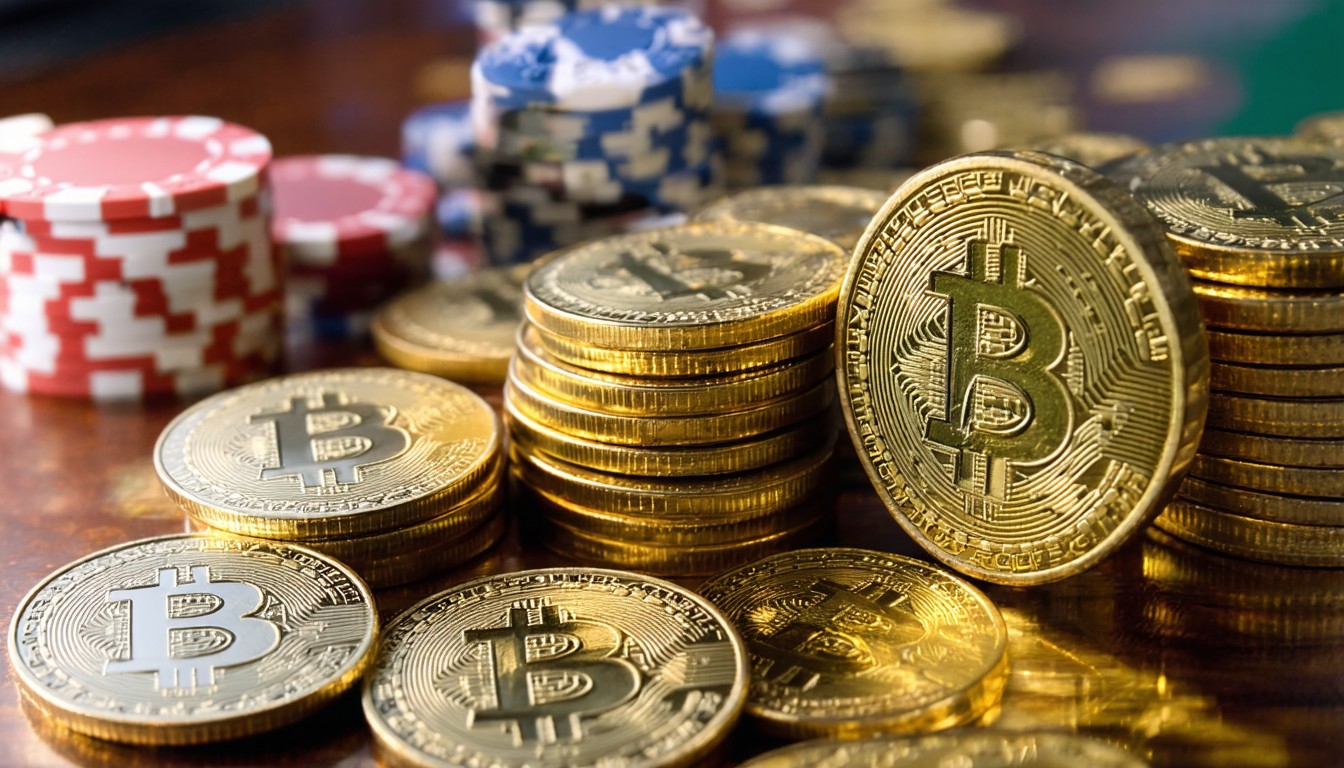For Canadian players, the move toward crypto casinos brings more than a change in payment methods—it sparks a fascinating psychological debate: Are you counting CAD or coins in your head as you play? This question digs into the way digital currencies fundamentally change risk perception, spending awareness, and player experience. While traditional Canadian dollar (CAD) gambling is familiar territory, the abstraction of cryptocurrencies like Bitcoin and Ethereum raises new challenges and opportunities for both players and casino operators.
Understanding the Dual Mindset: Traditional vs. Crypto Accounting
The Familiarity of Canadian Dollars in Gambling
In traditional online casinos catering to Canadians, bets, wins, and losses are displayed in CAD—an everyday currency with immediate meaning. Most players instinctively grasp the implications of a $20 wager or a $300 jackpot. This clarity supports responsible gaming habits and helps players monitor their budget.
Furthermore, regulatory standards in Canada often require transparent display of local currency values, reinforcing player awareness and reducing ambiguity. Canadian provincial platforms like PlayNow or Loto-Québec faithfully adhere to these principles, meaning players are rarely caught off guard by what they’re spending.
Crypto Casinos: The “Coin Conversion” Effect
Crypto casinos, however, disrupt this clarity. Here, bets are denominated in digital coins—Bitcoin’s satoshis, Ethereum’s gwei, or even entire tokens like DOGE. For example, a slot spin might cost 0.0005 BTC, which, at fluctuating exchange rates, could be worth anywhere from $20 CAD to $50 CAD, sometimes shifting rapidly within hours.
“The abstraction of value in cryptocurrencies reduces spending friction and can make risks feel more distant for the average player,” says Dr. Isabelle Tanguay, a Montreal-based behavioral economist.
This so-called “coin conversion” effect often leads users to think in terms of coins rather than their dollar equivalents. For the uninitiated, 1 DOGE or 0.001 ETH can seem playful or trivial, even when those tokens translate into significant CAD sums—an effect exploited by some casino interfaces that minimize or hide fiat conversions until withdrawal.
Real-World Impact: Data and Player Experiences
Psychological Studies on Digital Currency Behavior
Research into digital spending habits reveals a consistent trend: players are more likely to take risks and spend impulsively when wagering in digital tokens than when gaming with their home currency. A study published in the Journal of Behavioral Addictions noted that when amounts are presented in unfamiliar units—whether reward points, chips, or coins—participants routinely underestimate their spending.
This phenomenon is not exclusive to crypto casinos. A parallel can be seen in how casino chips, arcade tokens, and even “in-app” currencies promote more casual spending. The gamification and abstraction of digital coins amplify these effects, especially among younger or tech-savvy Canadian audiences attracted to crypto platforms.
Casino Design: Leveraging (or Mitigating) the CAD-to-Coin Divide
Leading Canadian-facing crypto casinos have noticed this behavior and tailor their interfaces accordingly. Some, like Bitstarz or Stake, offer toggles to display balances and bets in both crypto and CAD, supporting transparency and player trust. Others, with a more crypto-native audience, lean into the token-centric experience, reinforcing the perception that “it’s just coins”—a mindset that encourages higher engagement and, potentially, riskier behavior.
This divergence in interface design points to a broader industry debate: should crypto casinos nudge players toward responsible budgeting by referencing CAD, or embrace the native digital experience at the cost of clarity?
Player Scenarios: The Realities of Counting Coins vs. Counting CAD
Example 1: The “Lucky Loonie” Slot Player
Consider Sarah, an Ontario-based player experimenting with her first crypto casino. She deposits 0.01 BTC—worth about $400 CAD at the moment. As she bets “0.0001 BTC” per spin, the denomination feels small and somewhat detached from its dollar value. It isn’t until her balance dips below 0.002 BTC that she does the mental math and realizes she’s lost over $300 CAD in under an hour.
Example 2: The Crypto-Native Gambler
Jake, a longtime Bitcoin enthusiast in Vancouver, actively monitors his crypto portfolio and treats his gambling funds as part of broader investments. For Jake, tracking everything in coins is second nature. He views wins and losses as changes in coin balance rather than in CAD value. The emotional impact of losing 0.01 BTC is lower—unless, or until, he converts back to dollars and contemplates the real-world consequences.
How Players Cope: Tips Emerging from Canadian Forums
- Setting Loss Limits in CAD: Many expert gamblers and community moderators recommend predetermining budgets in CAD, even when playing in crypto.
- Using Casino Display Settings: Where possible, toggling to “show values in your local currency” can anchor spending and reduce risk.
- Awareness of Volatility: Players are increasingly factoring in not just the initial coin value, but market swings that affect real-world outcomes long after gameplay.
The Regulatory Landscape: Transparency and Protection
Canada’s Evolving Approach to Crypto Gambling
Canadian legislation is still catching up with the rapid expansion of crypto casinos. Unlike with traditional online gambling, where provincial authorities set clear requirements for consumer protection and currency transparency, the regulatory framework for crypto casinos is less prescriptive—especially for offshore platforms. This ambiguity places a greater burden on players to monitor their budgets and understand the value of their wagers.
Nonetheless, responsible casino operators are beginning to voluntarily adopt best practices including:
- Dual-currency balance displays
- Automated notifications summarizing spending in CAD
- Deposit and loss limit tools based on both coin and CAD values
Industry observers predict that as Canadian regulators tighten oversight, clearer CAD equivalency disclosures will become standard.
Industry and Expert Perspectives
Thought leaders in both psychology and gambling regulation stress the importance of recognizing this dual-accounting challenge. Dr. Tanguay summarizes the core issue:
“When the currency abstraction grows, so does the emotional distance from your spending. Both casinos and players share the responsibility for bridging this gap—through interface design, budgeting tools, and player education.”
Some pioneering crypto platforms are already piloting responsible gaming initiatives tailored to Canada, such as automated exchange-rate warnings and educational resources about coin volatility impacts.
Conclusion: Counting Wisely—Coins, CAD, or Both?
The transition to crypto casinos in Canada is altering not just how players fund their games, but how they think about winning and losing. The difference between counting “coins” versus CAD is more than a computational quirk—it shapes player risk tolerance, emotional experience, and, ultimately, outcomes at the tables and slots.
For optimal play, experts recommend using all available tools to maintain awareness: display local currency equivalents, track personal budgets in CAD, and be mindful of the psychological effects that digital coins can have. As the regulatory environment evolves and crypto gaming becomes mainstream, this hybrid approach—counting both coins and CAD in your head—will be crucial for safe, enjoyable gambling.
FAQs
How do crypto casinos in Canada display bets: in CAD or crypto coins?
Most crypto casinos show bets and balances in cryptocurrencies by default, but some offer toggles to view amounts in CAD for greater clarity.
Why does betting with crypto feel different than using dollars?
The abstraction of value in coins makes wagers and losses seem less “real,” which can encourage more impulsive betting compared to familiar CAD amounts.
Can exchange rates affect my crypto gambling results?
Yes, since the value of cryptocurrencies can change rapidly, the real-world impact of wins and losses in CAD may differ greatly from their original coin value.
Are there tools to help monitor spending in Canadian dollars on crypto casino sites?
Some casinos provide options to set deposit or loss limits in CAD, and may display balances in both currencies to support responsible play.
Is crypto gambling in Canada regulated as tightly as traditional online casinos?
Regulation of crypto casinos is less comprehensive, especially for offshore sites, but Canadian authorities are working toward more robust consumer protections.
What is the best way to stay in control when gambling with crypto in Canada?
Set clear budgets in CAD, use casino features that show fiat equivalents, and regularly check crypto-to-CAD values to understand your actual risks and rewards.














Leave a comment